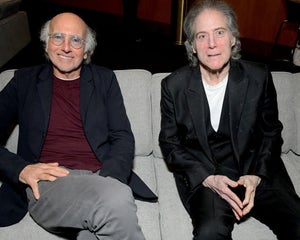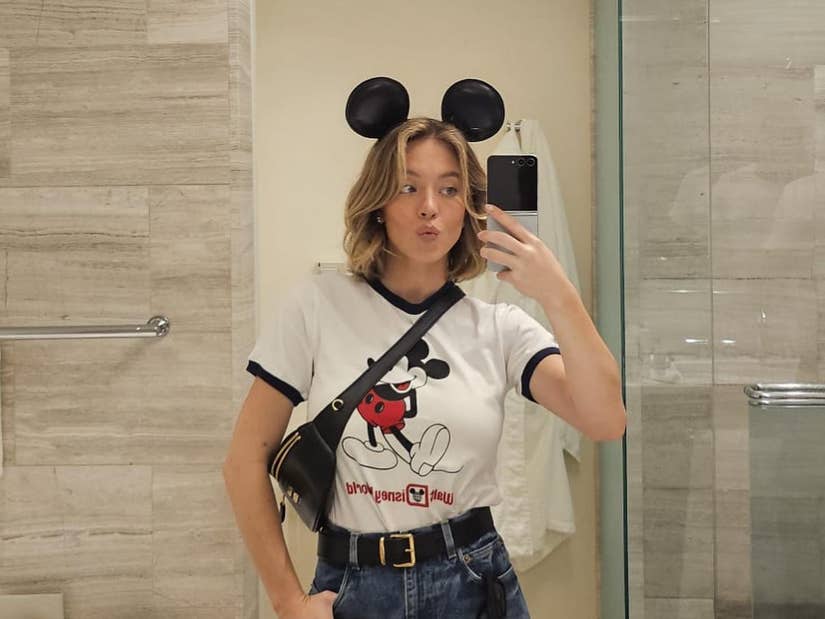Just like the fearsome foursome of ‘Seinfeld’ did in their controversial finale, Larry David finds himself facing his history of boorish behavior with a string of flashback witnesses in the courtroom on the ‘Curb Your Enthusiasm’ series finale.
After more than two decades and 12 seasons, Larry David’s Curb Your Enthusiasm sailed off into the sunset for good with its series finale Sunday night. Fans have long hoped the Seinfeld co-creator would connect the two series in the end, and he did — with a twist courtesy of Jerry Seinfeld himself.
Jerry was among the many guest stars that made their way into this hour-long finale, including several familiar faces from across the run of the series, and even one unfamiliar face. That’s because the actress was a child when she first appeared many years ago, returning now as a scarred adult.
Getty
Larry David Leads Tributes To Late Comedian Richard Lewis
View Story
Fans of both Seinfeld and Curb know that the HBO series is basically a spiritual successor to the hit NBC comedy series “about nothing.” Just as Jerry and his friends spent their time bickering about the minutiae of life, Larry took that to the nth degree in this faux version of his real life.
After nine seasons and 180 episodes, Seinfeld bid farewell on May 14, 1998 with one of the most controversial series finales of all time. Just over two years later, David picked up the torch with the launch of Curb Your Enthusiasm in October 15, 2000.
Playing a fictional version of himself in Hollywood, the Seinfeld series — and that ending — played a recurring part in Curb’s 120-episode run. The one-hour finale of that show put the cast on trial for one offense, but it turned into so much more.
The bulk of the episode turned into a revolving door of previous guest stars and recurring characters regaling the jury (and reminding the audience) of just how awful Jerry, George (Jason Alexander), Elaine (Julia Louis-Drefyus), and Kramer (Michael Richards) were.
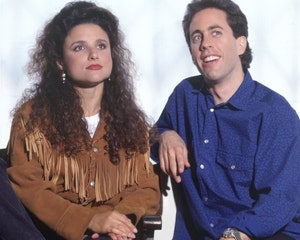
Getty
Julia Louis-Dreyfus Says She Urged Jerry Seinfeld, Larry David to ‘Write Me More’
View Story
In a parallel to this finale, Larry’s season-long journey toward trial for violating Georgia law by giving Leon’s (JB Smoove) Auntie Rae (Ellia English) a bottle of water while she waited in line to vote came to fruition, and then history repeated itself.
Just as with Seinfeld, Larry found himself facing his worst past offenses. Unlike the fictional characters he created for NBC, though, Larry remained unapologetic throughout, again attempting to justify his behaviors, and the occasional misunderstandings that led to all of these offenses.
Before the final jury verdict, Leon helped audiences recall the Seinfeld controversy by telling his roommate that he’d finally watched the entirety of the series, except the finale.
“I heard some terrible things about it,” he told Larry. “Heard you f–ked it up.”
That comment alone immediately set up the audience to be thinking about how David and Seinfeld wrapped up their first sitcom together, and anticipate how Curb might hope to improve that finale with a pretty, pretty similar premise.
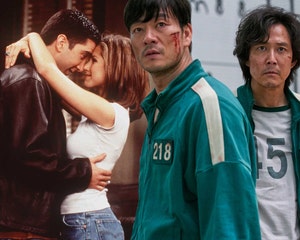
Getty/Netflix
10 TV Shows That Almost Had Entirely Different Endings
View Story
In the end, the results for Larry were the same as they were for Jerry and his friends. He was sentenced to a year in jail. We even got a fakeout ending with Larry talking to a fellow inmate about the “pants tent” that happens, a topic as inane as the “second button” discussion that bookended Seinfeld.
But … things didn’t really end there for Larry.
All of the major players of the Curb universe made their way to Atlanta for Larry’s trial, including Jerry Seinfeld, playing a similarly fictionalized version of himself. In one scene he rejected an opportunity at small talk and banter, which led to an encounter with a juror who resembled Joe Pesci.
That moment would come full circle as Jerry showed up in the very final moments at Larry’s jail cell to tell him he was free to go. As it turns out, Jerry saw the juror at a Mexican restaurant, and yet the jury was supposed to be sequestered.
Just like that, the case was declared a mistrial and Larry was free to go. As the two longtime friends made their way from the holding cells, Larry declared, “Oh my god, this is how we should’ve ended the finale.”
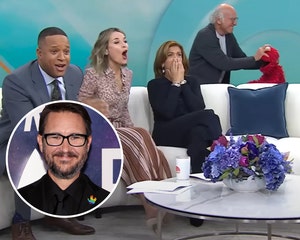
NBC/Getty
Wil Wheaton’s Triggered, Angry Response to Larry David Assaulting Elmo Goes Viral, Divides Fans
View Story
“Oh my god, you’re right. How did we not think of that?” Jerry replied.
One final scene put the show’s major players in a row on an airplane as they make their way back to Atlanta. Within moments they are fighting and bickering, as always, proving that for some people — like the Seinfeld crew — lessons will never be learned.
In many ways, Curb marks the end of a major era that began in 1989 with the premiere of Seinfeld. A show about awful people behaving unapologetically and never learning from their mistakes begat another show about awful people behaving unapologetically and never learning from their mistakes.
After 35 years, the journeys of Seinfeld and its co-creator — who inspired the character of George — has finally come to an end, in a similar fashion. But whereas Seinfeld finally attempted to teach its characters a lesson, Curb seemed to realize there was no point, and let Larry walk free.
Some lessons won’t be learned.

